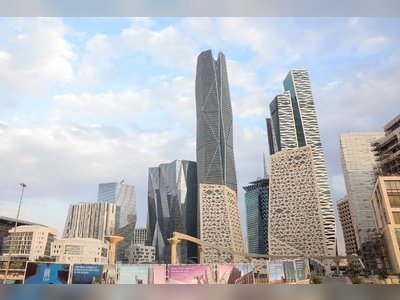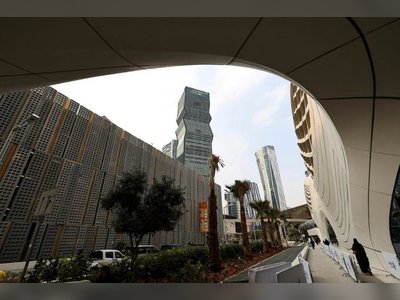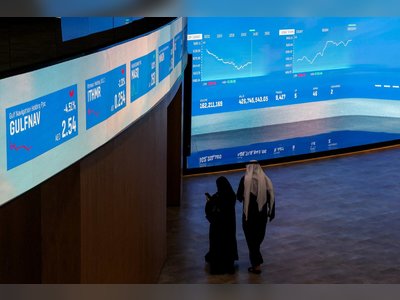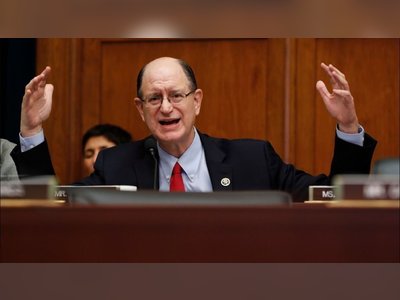
‘Durable Demand’: Pfizer CEO Expects $26B COVID-19 Vaccine Profits in 2021, Plans for Boosters
In a first quarter earnings statement on Tuesday, Pfizer Chairman and CEO Albert Bourla said the company expects to make $26 billion in revenue from sales this year of the COVID-19 vaccine it jointly produced with German firm BioNTech. However, he expects that vaccine manufacturing will only increase in future years, with the company preparing to make 3 billion doses in 2022.
While some of those will be two-dose treatments for first-time recipients, the company also expects COVID-19 to become endemic and is increasingly expecting to deliver annual booster shots as well, which could potentially be tweaked to protect from whichever strain is expected to be dominant that year.
“Based on what we’ve seen, we believe that a durable demand for our COVID-19 vaccine – similar to that of the flu vaccines – is a likely outcome,” Bourla said. “It is our hope that the Pfizer-BioNTech vaccine will continue to have a global impact by helping to get the devastating pandemic under control and helping economies around the world not only open – but stay open – creating a scenario in which Pfizer can continue to be both a leader and a beneficiary.”
Multi-Year Contracts Unveiled
Bourla spelled out that Pfizer has already reached an agreement with Canada to deliver as many as 125 million doses in 2022 and 2023, with the option of another 60 million doses in 2024.
Canada’s population is just 37.6 million. According to government statistics, Ottawa has already spent more than $1 billion procuring as many as 180 million vaccines, including up to 76 million from Pfizer expected to begin shipping sometime this week, but also three others from Moderna, Johnson & Johnson, and AstraZeneca, the lattermost of which includes 2 million doses donated by the United States.
Bourla also said Pfizer has signed a deal to supply the United Kingdom with up to 60 million more doses in 2021 and to supply Israel with enough doses in 2022 “for the government to boost every eligible citizen, subject to local guidelines – with the option to purchase millions of additional doses for additional boosters.” It’s unclear if this is intended to include the millions of Palestinians who live under Israeli occupation but are not considered Israeli citizens and have not been given the same access to COVID-19 vaccines by Jerusalem.
The Times of Israel reported on Wednesday that Israel already has more than enough vaccines for its population and is expecting millions more doses to arrive, which it may give away to other nations but has also hinted may simply be thrown away. Meanwhile, less than 1% of Palestinians have been fully vaccinated, most of whom are workers who come into daily contact with Israelis because, as the paper put it, “Israel does not believe it is legally required to vaccinate the Palestinians.”
Bourla also noted that younger age cohorts were also being tested for vaccination: ages 2 to 5, 5 to 11, and 12 to 16, with another test on six-month-olds to two-year-olds expected later this year. Data from the other tests is expected before the end of the summer.
Not all of the benefits for Pfizer will come from the vaccine itself, though: the research behind the new mRNA vaccine design has yielded gains on new fronts, including flu shots and antiviral treatments, and could potentially be applied to treating other rare diseases like the autoimmune disease alopecia areata. Pfizer is also looking at creating an antiviral treatment for COVID-19 to be administered as either a shot or a pill to people who have contracted the disease, similarly to influenza antivirals.
Unequal Access for Third World
Pfizer CFO Frank D’Amelio also said in the Tuesday meeting that as a percentage of total company revenue, the COVID-19 vaccine has increased to 36% from the 25% projection made at the start of the year. He noted Pfizer expects to make 2.5 billion doses in 2021 and has contracted to deliver 1.6 billion doses this year.
At present, Pfizer’s money from COVID-19 vaccines is derived purely from government contracts. The company offers three tiers of prices depending on the relative wealth of the buying country, D’Amelio said on the Tuesday call. It’s unclear how disparate those prices are, but a high-wealth country paid $19.50 per shot while Malaysia, ranked 36th in the world by gross domestic product, paid the equivalent of $18.79 per shot.
Other nations have not been so lucky. One unnamed Latin American nation, which could not be identified due to a confidentiality agreement signed with Pfizer, had to agree to bear the costs of lawsuits against Pfizer for adverse effects of the COVID-19 vaccines, according to the Bureau of Investigative Journalism. Negotiations with Brazil and Argentina fell apart, according to the report, after Pfizer demanded they put up sovereign wealth assets like embassies and military bases as collateral against future legal cases.
An official from the unnamed country told TBIJ the negotiations with Pfizer felt like “high-level bullying” and that it felt like the health of their citizens were being “held to ransom.”
Coming Price Hike Amid Anti-TRIPS Push
In a February call with Wall Street investors, D’Amelio indicated that the company’s pricing will change significantly once governments stop being their primary customer and the company can excusably increase prices to match their other vaccines. While Pfizer is presently getting $19.50 per dose in the US, he noted that “that’s not a normal price, like we typically get for a vaccine - $150, $175 per dose ... Let's go beyond a pandemic pricing environment, the environment we're currently in: Obviously, we're going to get more on price.”
That amounts to a nearly 900% increase over present prices. It’s no coincidence either, then, that Pfizer has very strongly opposed the movement by more than 80 Global South nations, led by India and South Africa, to convince the World Trade Organization to waive intellectual property laws with regard to COVID-19 vaccines. The Trade-Related Aspects of Intellectual Property (TRIPS) agreement put in place in 1995 globalized IP laws, making the manufacture of cheap generic versions of drugs all but impossible.
TRIPS came just as the first anti-HIV/AIDS drugs entered the market and as the virus spread across Africa, leaving the world’s poorest nations totally unable to afford life-saving drugs that were priced so high that even First World customers found them prohibitively expensive. AIDS deaths didn’t peak for another decade, reaching in 2004 more than twice the number of deaths as in 1995, with an estimated 1.7 million people dying of AIDS complications that year.
On Wednesday afternoon, US Trade Representative Katherine Tai announced that the Biden administration was coming out in support of patent waivers for COVID-19 vaccines, saying they were presently in negotiation with the WTO over the matter.
“This is a global health crisis, and the extraordinary circumstances of the COVID-19 pandemic call for extraordinary measures,” Tai said in a press release.











